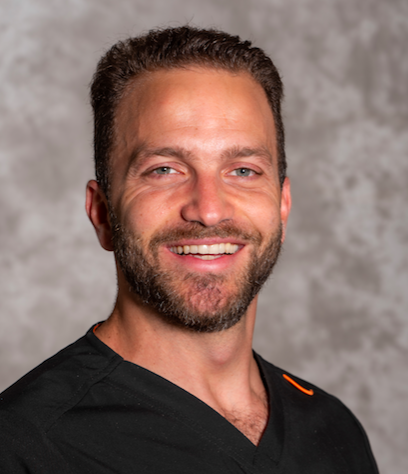How to Have a Happier, Healthier Gut
 “Gut health is at the core of wellness,” says gastroenterologist Ronald Andari, MD, who sees patients at Lakewood Ranch Medical Center. A healthy gut has a significant influence on our overall well-being, including decreased risk of cardiovascular disease, cancer and type II diabetes, among other conditions. *
“Gut health is at the core of wellness,” says gastroenterologist Ronald Andari, MD, who sees patients at Lakewood Ranch Medical Center. A healthy gut has a significant influence on our overall well-being, including decreased risk of cardiovascular disease, cancer and type II diabetes, among other conditions. *
Fiber and Gut Health
Gut health often begins with the foods we eat, says Dr. Andari, who emphasizes a diet high in fiber. Fiber helps to regulate our metabolism, reducing constipation and keeping our weight at a healthy level. Fiber also helps to support a healthy gut microbiota (the naturally occurring bacteria in our digestive system).
“Microbiota diversity matters. A balanced gut microbiota has been associated with better health,” says Dr. Andari. “Consuming a variety of foods rich in fiber supports the bacteria environment.”
According to Dr. Andari, probiotics (good bacteria) can be found in fermented foods, such as Greek yogurt, kefir and sauerkraut. Prebiotics (fiber that feeds good bacteria) are found in foods like onions, garlic and bananas. Healthy gut bacteria has also been shown to positively influence our brain health, promoting improved cognition and positive mood. **
Dr. Andari often recommends a Mediterranean-style diet, which he says can “significantly improve health and prolong life.”
The diet emphasizes vegetables, fruits, whole grains, beans and legumes and includes low-fat or fat-free dairy products, fish, poultry, non-tropical vegetable oils and nuts. The diet limits added sugars, sugary beverages, sodium, highly processed foods, refined carbohydrates, saturated fats and fatty or processed meats. *** Ask your healthcare provider if this diet is right for you.
“Proper hydration also supports the mucosal lining of the intestines, helping to maintain overall gut health,” says Dr. Andari. “Consider the 8x8 rule, which suggests drinking eight, 8-ounce glasses of water every day.”
When to See a Specialist and Diagnostic Care
Common complaints of patients who come to see Dr. Andari include heartburn, trouble swallowing, abdominal pain, diarrhea or constipation, bloating, blood in the stool, urgency and/or fecal incontinence, among others. “Listening carefully to my patients most often reveals the path for an accurate diagnosis and successful intervention,” says Dr. Andari.
The diagnostic workup is individualized and may include blood or stool testing and/or endoscopic evaluation, says Dr. Andari. The endoscope is a flexible tube with a light and camera or ultrasound on its tip. The procedure allows for the visual inspection and biopsy of internal organs, including the esophagus, stomach, pancreas and bile duct (biliary) systems, small bowel and colon.
Gastrointestinal Care at Lakewood Ranch Medical Center
Dr. Andari and his partners, gastroenterologists Tonantzin Matheus, MD, and Avantika Mishra, MD, treat a wide range of patients from ages 16 to 100.
“Lakewood Ranch Medical Center offers advanced gastrointestinal care with a wide range of endoscopic procedures and sophisticated equipment, technical support, laboratory and pathology services," says Dr. Andari. “We offer treatment for a wide range of conditions, including reflux disease, esophageal disorders, diseases affecting the liver, pancreatic cysts and cancers, celiac sprue, Crohn’s disease and ulcerative colitis, colon polyps and cancer, among many others.”
SOURCES
*Rough Up Your Diet | NIH News in Health
*** What is the Mediterranean Diet? | American Heart Association
